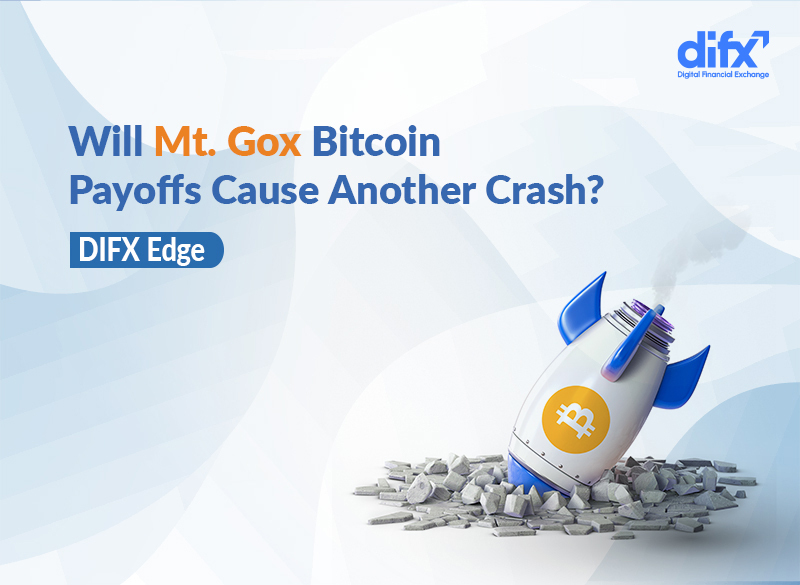September 15th: the D-day for Mt. Gox customers as they finally will get one step closer to getting some of their lost Bitcoins back, hopefully! After the Tokyo District Court proceeded with the case in 2017, customers could claim their lost funds by sending their applications to the rehabilitation trustee using the designated system.
Mt. Gox, one of the first and biggest crypto exchanges in the world, suffered a huge hack back in 2014, losing 850,000 Bitcoins. After the hack, the exchange went bankrupt and suspended all withdrawals, leaving around 24,000 creditors running after their lost funds for more than 8 years.
Now that the reimbursement process is actually going to start for customers, the crypto space is wondering about the effect it may have on the Bitcoin and cryptocurrency market.
What Happened to Mt. Gox?
Launched in 2011 in Tokyo, MT. Gox was once one of the biggest Bitcoin exchanges in the world. It was handling around 70% of Bitcoin’s trading volume which put it in a great position to control the Bitcoin market.
In early 2014, users started experiencing issues withdrawing their crypto assets from the exchange. This pushed Mt. Gox to begin investigating the matter which lead to their halting the withdrawal of funds due to some suspicious activities in their addresses.
Apparently, the hackers had found a way to transfer the assets from the exchange way back and had been busy stealing from the exchange for years. By the time Mt. Gox realized there was a leak, the hackers had pocketed around 850,000 Bitcoins (around $500 million at that time). In April of the same year, the exchange declared bankruptcy which caused a sharp drop in the price of Bitcoin.
Later on, Mt. Gox managed to put together some of its assets but customers were not able to access them as a legal battle was going on. In late 2021, Tokyo District Court and the creditors were able to finalize the rehabilitation plan and the creditors were asked to provide the required information to receive the payments.
In July 2022, the trustee asked the creditors to choose their desired payment method. Customers could opt to receive their repayments in cash or crypto. They could also go for the “Early Lump-Sum Repayment” which gives them the option to receive their repayment all at once, however, they’ll be settling for less.
According to the document released in 2019, Mt. Gox holds 141,686 Bitcoin, 142,846 Bitcoin Cash, and 69,776,002,441 Japanese Yen.
Will the Reimbursement Bring More Selling Pressure on Bitcoin?
The question most of the crypto space is talking about is whether the payouts would pose downward pressure on Bitcoin as creditors start dumping their Bitcoins to get some of their long-lost money back. This could cause a ripple effect, deepening the selling pressure as the market sentiment is quite bearish at the moment.
Let’s consider the worst-case scenario: around 142,000 Bitcoins are dumped into the market at once. For this to happen, the trustee should pay back all creditors at the same time and all creditors have to decide to sell their coins at once. For instance, all the creditors could ask the trustee to liquidate the holdings and pay them back in cash.
This is quite unlikely to happen but even if it does, the amount would not be a significant portion of the current Bitcoin daily trading volume which sits at around $34B according to CoinMarketCap.
All things considered, we may expect some price fluctuations as the event hits the headlines but it doesn’t seem like it would have any long-lasting, sharp effect on the Bitcoin or cryptocurrency market, in general.

